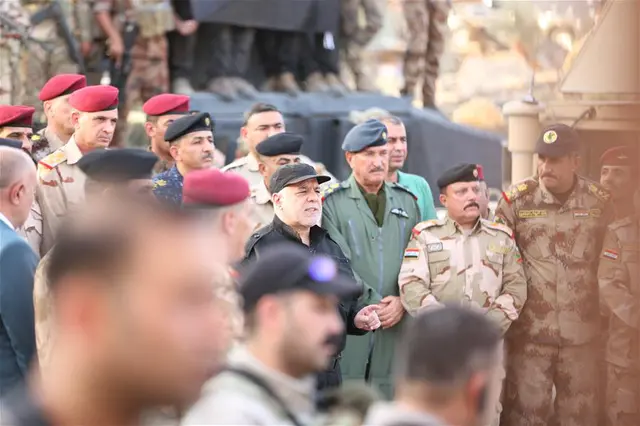Iraqi Prime Minister Haider al-Abadi on Monday formally declared
Mosul liberated from Islamic State (IS) militant group after nine months
of fierce fighting to dislodge the extremist militants from their last
major stronghold in Iraq.
"I declare to the whole world the end, failure and collapse of Daesh
state, the state of (IS group) terrorism, which they announced it here
in Mosul three years ago," Abadi said in a speech in Mosul.
On Sunday, Abadi, who is also the Commander-in-Chief of Iraqi forces,
paid a visit to Mosul and held meetings with the military commanders
before he made a tour in the eastern side of Mosul, where hundreds of
people welcomed his presence.
Late on Sunday, Abadi said "the victory is guaranteed" and the
remnants of IS group are "besieged in the last inches," according to a
statement by his office.
On Oct. 17, Iraqi Prime Minister Haider al-Abadi announced the start
of a major offensive to retake Mosul, the country's second largest city.
Since then, the Iraqi security forces have inched to the eastern
fringes of Mosul and made progress on other routes around the city,
preparing for a major battle to storm the city and drive out IS
militants.
Late in January, Abadi, who is also the commander-in-chief of the
armed forces, declared the liberation of the eastern side of Mosul, or
the left bank of Tigris, after more than 100 days of fighting against IS
militants.
On February 19, the security forces resumed the offensive to drive
extremist militants out of the western side of Mosul, locally known as
the right bank of Tigris River which bisects the city.
However, the western part of Mosul, with its narrow streets and
heavily populated neighborhoods of the Old City center, appeared to be a
bigger challenge to the Iraqi forces and took about five months until
the troops fully liberated the while western side, including Old City.
Mosul, 400 km north of Iraq's capital Baghdad, came under IS control
since June 2014, when government forces abandoned their weapons and
fled, enabling IS militants to take control of parts of Iraq's northern
and western regions.
 简体中文
简体中文

